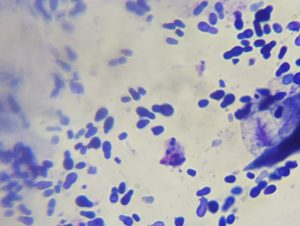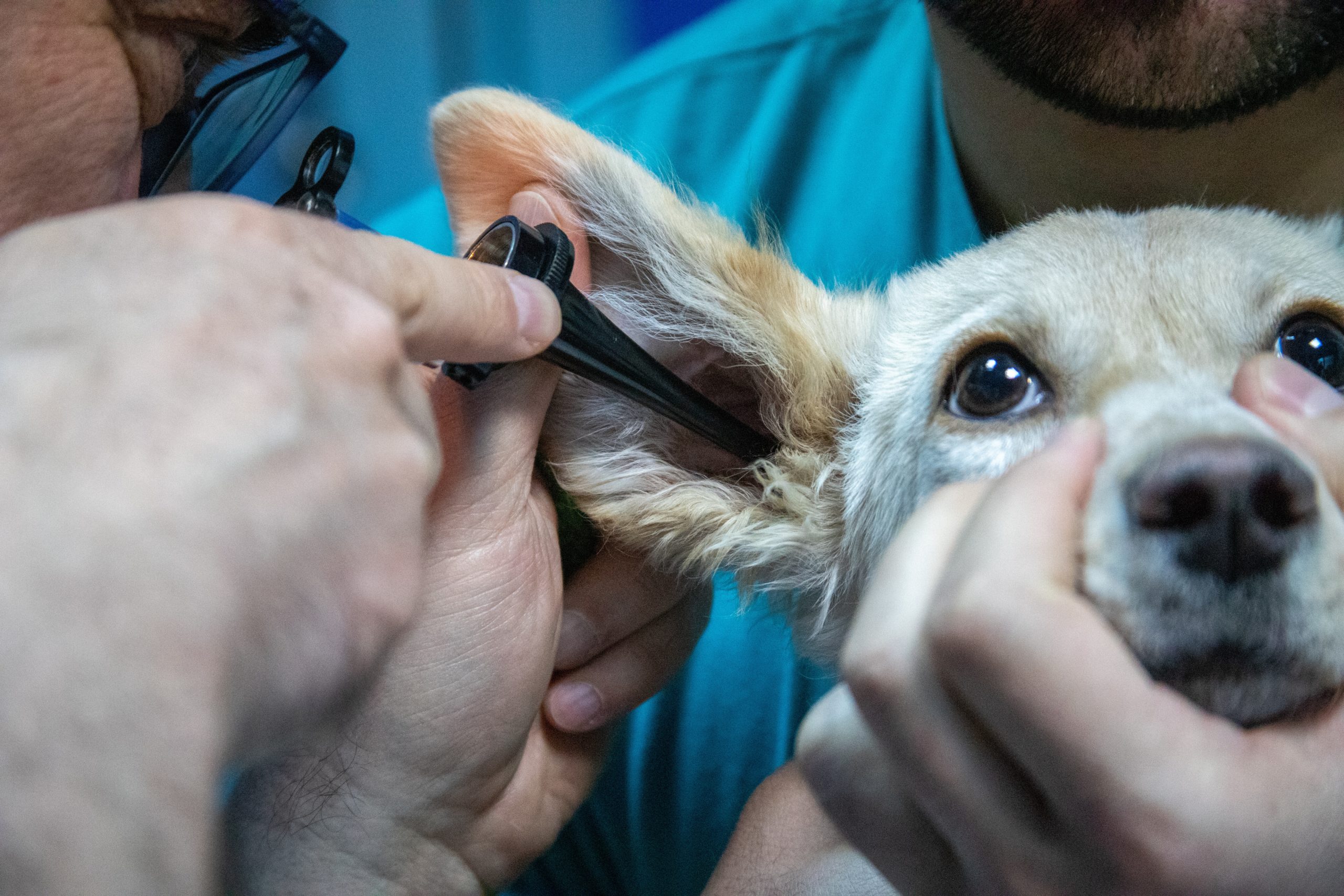Dogs are prone to ear infections due to their floppy ears, which can trap moisture, dirt, and bacteria inside the ear canal. Ear infections in dogs can be painful and uncomfortable, and if left untreated, can lead to more serious problems like ear hematoma or narrowed ear canal. Cats can also get ear infections that need to be treated to avoid discomfort and complications. In this blog post, we’ll explore the causes, symptoms, and treatment options for dog ear infections.
Causes of Ear Infections
There are several factors that can contribute to ear infections in dogs, including:

- Allergies: Dogs with skin allergies can develop ear infections as a result of excessive itching and scratching, which can damage the skin in the ear canal.
- Moisture: Dogs with floppy ears are more susceptible to ear infections due to the accumulation of moisture inside the ear canal. Dogs that swim or are bathed often are prone to ear infections.
- Bacteria and yeast: These organisms can thrive in moist environments, leading to infections.
- Ear mites: Tiny parasites that live in the ear canal can cause infections and inflammation.
- Foreign objects: Objects like grass, seeds or dirt can become lodged in the ear canal and lead to infections.
- Hormonal imbalances: Some dogs are more prone to ear infections due to hormonal imbalances, such as hypothyroidism (low-thyroid).
Symptoms of Ear Infections
The symptoms of dog ear infections can include:
- Redness and swelling in the ear
- Discharge from the ear (yellow, brown, or bloody)
- Odor from the ear
- Itching or scratching at the ear
- Head shaking or tilting
- Loss of balance or coordination
- Pain or discomfort when the ear is touched
If you suspect that your dog has an ear infection, it’s important to seek veterinary care as soon as possible. Untreated ear infection can lead to complications like ear hematoma or severe inflammation of the ear canal. Severe inflammation of ear canal can lead to narrowing of the ear canal which can further precipitate more ear infection leading to a vicious cycle.
Diagnosis of Ear Infections
Normally, we recommend an ear cytology as the first diagnostic test for ear infections. For ear cytology we take sample from ear canal on a slide, stain it and look under microscope. This can help find any yeast or different kind of bacteria causing ear infection. Sometimes, a test for ear mites is needed.
Treatment of Ear Infections
The treatment for a ear infection depends on the cause and severity of the infection. In many cases, a veterinary visit is necessary to diagnose and treat the infection.
- Medications: Antibiotics or antifungal drugs may be prescribed to kill the bacteria or yeast causing the infection.
- Cleaning: The vet may clean the ear canal and remove any discharge or debris.
- Ear drops: Medicated ear drops may be prescribed to reduce swelling, pain, and to fight the infection.
- Home care: In some cases, our veterinarian may recommend cleaning the ear at home and using medicated ear drops to keep the ear clean and dry.
Prevention of Ear Infections
The best way to prevent ear infections is to keep the ears clean and dry. This can be achieved by regularly cleaning the ears, keeping them dry after swimming, and avoiding exposing the ears to irritants or allergens.
Pet owners can take steps to prevent dog ear infections, including:
- Keeping the ears dry, especially after swimming or bathing
- Regular cleaning of the ears (once a week or as recommended by your veterinarian)
- Avoiding the use of cotton swabs, which can push debris further into the ear
- Monitoring your dog for signs of allergies and treating promptly
- Some pets may need allergy medicines regularly if they are getting frequent ear infection
- Keeping your dog’s immune system healthy through proper nutrition and regular veterinary check-ups
In conclusion, dog/cat ear infections are a common problem that can cause discomfort and pain for our furry friends. If you suspect that your dog has an ear infection, seek veterinary care as soon as possible to prevent the condition from becoming more serious. By taking preventive measures and following the advice of the veterinarian at Harmony Pet Clinic, you can help keep your dog’s ears healthy and free from infections.
